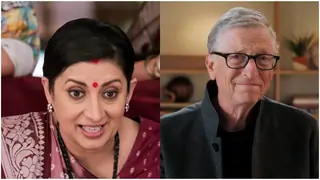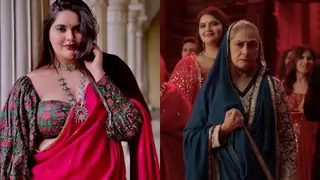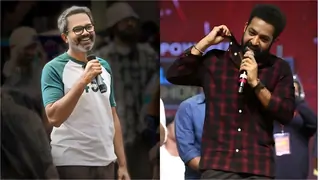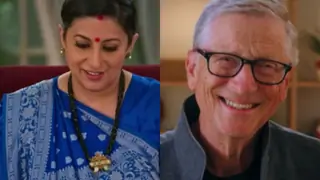Hi all
Foreword
This is a post for a discussion on the topic of GREATness. I am trying to figure out on what basis do we classify people as great.
The origin of this writeup lies in a question, which a friend of mine asked recently. The topic under consideration was Maharana Pratap, the King of Mewar, who never submitted to the authority of Mughal Emperor Akbar and waged a LONE battle throughout his life. The question put was the basis of GREATness. We had the mention of Ashoka, Alexander, Akbar - All GREATs.
It was then, it came to my mind to write a few words. And, here is the post i ended up writing. This post contains my own views. I would like to read more views on this subject from people around the world. Please note that this post has been written for a constructive debate and with a genuine urge to know what different people from different backgrounds think about this topic. I kneaded some philosophical insights with a dash of history. Let me start here.
This topic of greatness is a bit conflicting for me because there are many ways to look at it. The Great Man theory has been reduced to mere pages of history, but its allure continues to mystify one and all. When we talk about greatness, we assume that when the time comes, the right man - it is often assumed to be the right man only - will take control of the most dire situations, will come out almost magically from all the tragic events and always emerge a winner. Often he is projected as a super hero, a super man of sorts, who can drive events and manipulate destiny, entirely on his own or by attracting the right people to do the job for him. This is what is the general image of a GREAT man, most often. But, we should see that it is RARE to find a GREAT man withOUT a fault..!
OR.
One can analyze it in philosophical terms as well. We can say GREATness is a state of superiority. It can be said to be a natural ability to be better than all others. Like an implication that the person, when compared to others of "similar types", has clear advantage over others. In some cases the perceived "greatness" of a person, might be agreed upon by many, but this does not necessarily finishes the debate, as the perception of "greatness" may be both fiercely contested and is highly individual.
With such disclaimers , i now, start my post.. :-P
There are not only Emperors Akbar, Ashoka and Alexander who are called great. Peter of Russia is also called GREAT. Then we have Pompey - The Great (Roman Emperor Julius Caeser died at his statue. Remember?) . We have the Turkish Emperor Suleiman - The 'Magnificent'. Shah of Persia - Abbas , who was a contemporary of Mughal Emperor Akbar, is also called GREAT. Likewise, there are many other monarchs called Great.
In Present discussion , i am restricting myself to Akbar, Ashoka, Alexander ; and the topic of Maharana Pratap, the ONLY Rana to have the prefix of 'Maha', meaning GREAT. I presume we know about the life of Emperors Akbar and Ashoka. So, i am adding a few lines about Alexander here, to give a brief BG, since we need to know about him also...
A Brief Introduction to Alexander
Alexander - People like him are RARE. He is one of history's most famous conquerors and a legend of "almost divine status" in his lifetime. He belongs to the elite category of individuals who changed the history of civilisation and shaped the world as we know it today. More than 50 cities are still named after him, after more than 2000 years of his death. He destroyed many a beautiful city during his conquests, for which he is loathed at some places. But he is also acknowledged as a GREAT monarch at many places, from Babylon to the Pyramids of Cairo to the vicinity of the Sands of Thar.!
From a leadership perspective, Alexander was without a peer. He could be magnanimous towards defeated enemies and loyal toward his friends, and as a general he led by example, literally from the front. He died young more than 2,000 years ago, but his life offers important lessons even today. We can not compare him with Akbar or any other monarch. His time was different, his method was different, his area of rule was different. Though, one can compare "individual" acts of these "great" people, and can debate , but overall "objective comparison" of greatness among them is not possible.
Alexander set the example of excellence with his leadership style, which involved sharing his soldiers' triumphs and woes alike. When his troops went hungry or thirsty, he went hungry or thirsty. When their horses died beneath them and they had to walk, he did the same. This accessibility changed only when he succumbed to the luxury of court life, and that was the beginning of the end for Alexander.!!
From an early age he was an achiever. He conquered territories on a superhuman scale. He established an empire, until his times unrivaled, and he died young, at the height of his power. At the young age of 20, he inherited the powerful empire of Macedonia, which by then controlled Greece and had already started to make inroads into Asia. Later, he invaded Persia, and within a decade he had defeated the Persians, subdued Egypt, and pushed on to Iran, Afghanistan and even India. As well as his vast conquests, Alexander is credited with the spread of Greek culture and education in his empire, not to mention being responsible for the physical and cultural formation of the hellenistic kingdoms -- some scholars in fact argue that the hellenistic world was Alexander's legacy. He has also been viewed as a philosophical idealist, striving to create a unity of mankind by his so-called fusion of the races policy, in which he attempted to integrate Persians and Orientals into his administration and army. Thus, within a dozen years Alexander's empire stretched from Greece in the west to India in the far east, and he was even worshipped as a god by many of his subjects while still alive. On the basis of his military conquests contemporary historians, and especially those writing in Roman times who measured success by the number of body-bags used, deemed him great.
Some Drawbacks of Alexander
As i said in the starting, it is RARE to find GREAT men withOUT a FAULT. However, does a man deserve to be called 'The Great' when he was responsible for the deaths of tens of thousands of his own men and for the unnecessary, wholesale slaughter of native people ? Or whose violent temper on occasion led him to murder his friends and who towards the end of his life was an alcoholic, paranoid, megalomaniac, who believed in his own divinity?
Just like the massacre at Chittor is a blot on Akbar, Alexander also carries the taint of wiping out large scale populations from their native lands during his conquests. Alexander is also criticized for continuous warfare instead of taking out time for consolidation and long-term administration.
These are questions posed as per the ethical standards of today, of course. In those times, such questions did not matter one bit; nevertheless, they are legitimate questions, given the influence which Alexander has exerted throughout history - an influence, which will no doubt continue. The first text which calls Alexander as Great was written around 200 BC by the Roman writer Plautus.
What Makes Akbar Great?
In my opinion, Mughal Emperor Akbar is great, but certainly not because of his Empire. I say this because, if you talk about the extent of empire, then Aurangzeb and Shah Jahan had a bigger empire than Akbar.
I already talked about the land Alexander won in his lifetime. Even the ancient Indian monarchs Chandragupta Maurya and Samudragupta had a bigger empire. Samudgragupta is also termed The Indian Alexander by historian Vincent Smith. Going down South, one can not forget the might of Raja Raja Chola, who even had the capacity to subjugate Lanka and eyed the Spice Islands. Art and Culture flourished in his reign.
Ashoka was a "warrior reformer". His Empire extended upto Kandhahar beyond the Hindukush and Sravenbelgola in the south.!!
Akbar is great because of the brilliant strategies, which he incorporated to keep his empire stable for a long time and the reforms which he carried out in this land, which was divided on the basis of religions. We had a ruthless conqueror in Akbar in the initial period of his life who wanted to win HIND at any cost. A determined monarch with fierce strategies, he has been compared to Alexander in battling prowess by his chroniclers.
There is a difference between THE Akbar who wanted to expand his Empire in the "initial" period of his life and THE Akbar who executed these reforms for the welfare of ALL his people.
Akbar showed through his reforms that he was tolerant and "accommodating". But he could also be a devil to those who did not accept him as their master. Who can forget Chittor ? It is TRUE that Akbar brought in all those reforms, after stabilizing his empire and safeguarding it from all sides. The Right TIME and the Right OPPORTUNITY are required for such watershed changes as also the ability to recognize when the time was right and to seize an opportunity when it presented itself. It was possible for Akbar to be daring in his reforms because he had that URGE and the required political muscle. From the perspective of Abul Fazl, Akbar is lent an almost divine status.
Can Hitler and Napoleon Be Called Great?
In the said conversation, we talked about Hitler too. Why don't we call Hitler great ? After all, he was fighting for the "cause" of the German RACE and wanted to avenge the humiliation of First WW. There was a time in Germany when Hitler's book Mein Kampf was given to all newly married couples, to advocate his doctrine. But, we can not forget the genocide he unleashed on the Jews. Why don't we call Napoleon great ? In fact, Napoleon brought in some good reforms for his nation. As i said in the beginning, GREATness is a term which we decide from person to person. In addition, different people will have different criteria to define someone as great.
Maharana Pratap - Does he Qualifies to be called Great ?
Finally, coming to Maharana Pratap (MP), which was the original topic of my discussion. We can not compare MP with Alexander, as far as "extent" of political empire is concerned, but certain individual acts i would like to point out. Like Alexander, he too led from front, MP's wars were fought by him, "in person". He may not have that many resources with him as Alexander, Ashoka and Akbar, but nonetheless, he was second TO NONE when it came to IDEALS and PRINCIPLES. He never bartered his independence no matter what . Come what may, he faced it all.Even after being hunted from forest to forest and from cave to cave, he refused to submit to the Mughals.
Single-handedly, for a quarter of a century [1572-97], he withstood the mightiest empire of his times under one of the mightiest sovereigns to have ever walked on this earth. The story of the prolonged struggle between Maharana Pratap and Akbar is replete with incidents and produces the impression that it involved the Mughals in useless sweat and toil. Try as they did, the Mughal Emperor could not wrest back control of Mewar (with the major exception Chittorgarh) from Pratap, till the time he lived.
Great warrior as Pratap was, it is to be admitted that Akbar was a master strategist who brought almost everyone into his fold whatever may be the means, except Pratap. Pratap's remaining aloof from that hold was an impediment to his task(as Abu'l Fazl says). Had Pratap joined the service of Akbar, his country could have been saved from plunder, continuous destruction and ruin.But Pratap's name is immortal in the history of this land as a great soldier of liberty. He focused on the moral aspect of the struggle without caring for material advantage or losses involved.
His was a war not aimed at increasing his dominions, but to uphold the independence of his race, and as long as this race lives, it will cherish with pride the memory of one who staked his all in a fight against the person "who wanted to imperialize him". As a great warrior of liberty, a devoted lover of noble cause and a hero of moral character, his name is to millions of men even today, a cloud of hope by the day and a pillar of fire by the night.
Pratap was nobly supported. The temptations of wealth and fortune could not sway his followers from leaving his side. With the aid of some chiefs with good judgment and experience, Pratap remodeled his government, adapting it to the exigencies of the times and to his slender resources. New grants were issued, with regulations defining the service required. Kumbhalgarh, now the seat of government, as also Gogunda and other mountain fortresses were strengthened. Unable to keep the field in the plains of Mewar, he followed the system of his ancestors and commanded his subjects, on pain of death, to retire into the mountains. During the protracted contest, the fertile tracts watered by the Banas and the Beris, from the Aravalli chain to the eastern tableland, were to be left. The range to which Pratap was restricted was the mountainous region around, though chiefly to, the west of the new capital, Udaipur. His writ ran from north to south, from Kumbhalgarh to Ricumnath, and from west to east, from Mirpur to Sataula.
Pratap was a gallant foe to Mughal Emperor Akbar and, despite his ill fortune, he made the latter fight hard for triumph. The people of Mewar rallied behind Pratap in excruciating living conditions and are worthy of remembrance. IMO, the vanquished were "greater than the victor"... IN short, one can term it a war between two people - a war that was all about "Love for one's freedom vs. Imperialism".Had Mewar possessed her Thucydides or her Xenophon, neither the wars of the Peloponnesus nor the retreat of the " ten thousand " would have yielded more diversified incidents for the historic muse than the deeds of this brilliant reign amid the many vicissitudes of Mewar. Undaunted heroism, inflexible fortitude, that which " keeps honour bright ", perseverance -with fidelity such as no nation can boast, were the materials opposed to a soaring ambition, commanding talents, unlimited means, and the fervour of religious zeal ; all, however, insufficient to contend with one unconquerable mind - that of Pratap.
I re-iterate, GreatNess of any person is seen in context of what is the benchmark we set.
For some, it is the morals, principles and heroism of Pratap which make him GREAT. There were times when he had nothing to eat, when he lived in forests, feeding his family on wild fruits and water.!!. His family slept on an empty stomach. Pratap was a person who was born in a Royal House, whose ancestors ruled Chittor right from 734 AD, starting from Bappa Rawal. Was he born to lead a life like this.?? He could have easily accepted the suzerainty of the Mughal Emperor and led a comfortable life in a palace. But he rejected all this - for what ?? IDEALS and FREEDOM. He was a man who refused to act under the orders of anyone.! Just like Akbar was NOT accustomed to see anyone disregarding his orders, in the same manner, Pratap was NOT used to take orders from anyone, except his own SELF.
Aren't some of these qualities sufficient to concede a THOUGHT about the greatness of Pratap - the ONLY 'Maha'rana among all the Ranas ?? This is my question to all, as this was the question put to me also.
Conclusion
I am not passing any judgement on the GREATness of any individual here. This post is an attempt to know the varied viewpoints of the readers.
Interestingly, most of the time, i find it hard to explain, how i am able to respect both Akbar and MP, who happened to be the MOST FIERCE RIVALS of each other during their lifetime. As much as i admire and salute the Maharana for his courage, principles & never say die spirit ; i also admire Akbar for taking on the established orthodoxy and daringly carrying out various reforms including ones, which were considered BLASPHEMOUS at the time.
This post is mostly written from the perspective of Pratap, as the topic of debate was more about the Maharana and his status vis-a-vis the generally "taught" definition of greatness. I am going to play a devil's advocate here. And, the two people chosen are the contemporaries and bete noir - "Emperor Akbar and Maha Rana Pratap", both of whom happen to be the different sides of the same coin.! This is going to be interesting..
PS : Entire Post can be READ here as well : LINK



























